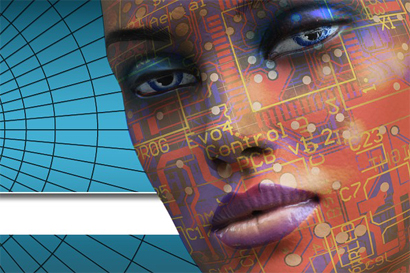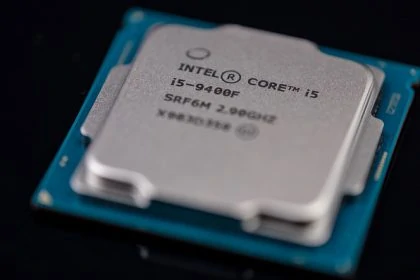The German federal government has just decided that Germany shall become one of the world’s leading areas for artificial intelligence. Reason enough to take a look at the EU directive for AI and ML, which has just entered into force.
New EU guidance for Artificial Intelligence
The new directive “Artificial intelligence and machine learning” of the European Patent Office (EPO) assigns calculation models and algorithms to the field of artificial intelligence (AI) and machine learning (ML). In detail, the Directive mentions classification, clustering, regression and dimension reduction – such as neural networks, genetic algorithms, k-means, support vector machines, nuclear regression and discriminant analysis.
All these methods are seen as “per se abstract mathematical nature”. This is relevant because it means that the EPO rejects the patentability of these calculation models and algorithms. Significantly, the new Directive is a subchapter of the list of exclusions of patentability in mathematical methods.
AI and ML are attributed to mathematical models
 According to Article 52 EPC, mathematical methods are in principle excluded from patentability unless the mathematical method is of a technical nature. However, a general purpose such as the “control of a technical system” is not sufficient. A “neural network” or a “support vector machine” are also seen as abstract models without a technical character. Furthermore, the Directive clarifies that “even if a classification algorithm can be regarded as valuable for the mathematical properties”, that alone is not a technical purpose.
According to Article 52 EPC, mathematical methods are in principle excluded from patentability unless the mathematical method is of a technical nature. However, a general purpose such as the “control of a technical system” is not sufficient. A “neural network” or a “support vector machine” are also seen as abstract models without a technical character. Furthermore, the Directive clarifies that “even if a classification algorithm can be regarded as valuable for the mathematical properties”, that alone is not a technical purpose.
Rather, it must be proved that the invention produces a technical effect which serves a technical purpose. What is important, however, is that if patentability depends on a technical effect, the patent claims must be very clearly defined. All the technical features that are essential for the technical effect should be included.
In a second part, the Directive explicitly deals with the topics “simulation, design or modelling”. In the context of the computer-aided construction of a certain technical product or process, the determination of a technical parameter is a technical purpose – if this is closely related to the functioning of the technical object (T 471/05, T 625/11). Then patentability is also given.
Patentability easier on basis computer-implemented invention
Examples from the “computer-implemented inventions” illustrate the successful proof of a technical character. Concrete technical applications of computer-implemented simulation methods are to be regarded as inventions within the meaning of Article 52 EPC even if they comprise mathematical formulae, the EPO Board of Appeal already decided in 2006 in the case Infineon Technologies (T 1227/05). Circuit simulations of the power of an electronic circuit with 1/f noise have the necessary technical character, because they represent an essential part of the manufacturing process for circuits, it was stated in the reasoning.
The simulation of an industrial chemical process could also be a technical process with a technical purpose. And in a computer-implemented process for designing an optical system, the use of a particular formula to determine technical parameters for given input conditions to achieve optimum optical performance makes a technical contribution.
On the other hand, if the computer-aided determination of the technical parameters depends on decisions of a human user and the technical considerations for those decisions are not specified in the claim, a technical effect of the improved construction cannot be recognised since such an effect would not be causally linked to the claim characteristics, the directive for “simulation, design or modelling” for machine learning and artificial intelligence clarifies.
In conclusion
In practice, the new guidelines for AI and ML differ significantly from the Computer-Implemented Inventions Directive – this can lead to uncertainty. Moreover the new directives still have to prove themselves before the courts. Because even in machine learning, as in metrology and electromechanics, different process steps are interwoven. Computer-controlled processes require interaction with data sets, algorithms and technical objects. However, procedural claims only arise through computer-controlled interaction with technical objects and through simulations with a demonstrable technical purpose. Thus, although there is a political declaration of intent for AI, patent protection for AI is still restrictive in Europe.
But neither China nor the USA are waiting for the EU. The American Patent Office has already signaled that AI should be patentable in general, and the Chinese Ministry of Science and Technology already presented the Internet giants BAT (Baidu, Alibaba Group and Tencent Holdings) and iFlyTek as a developer group for AI in November 2017.
Are you looking for protection for your technique, industrial robot or AI?
We would be pleased to support you with the necessary research and correct registration of your trademark. Please take your chance and contact us.
Our lawyers are experienced in trademark and patent law, national and international law.
Sources:
Epo Guideline Artificial intelligence and machine learning
EPO Guideline AI – Simulation, design or modelling
Picture:
geralt / pixabay.com / CC0 License








Leave a Reply